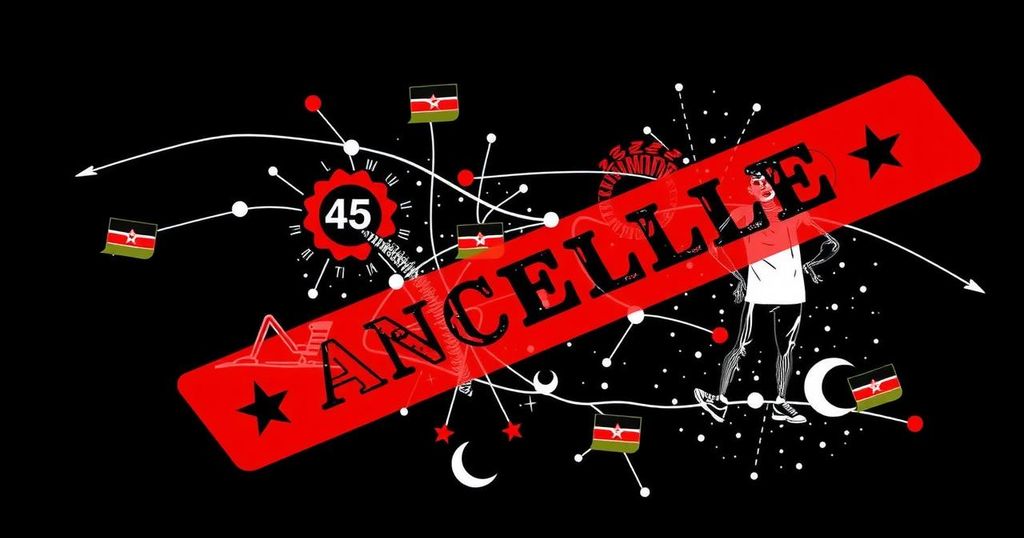Kenya has canceled multi-billion dollar contracts with Adani Group amidst social media outrage following U.S. bribery charges against Gautam Adani. The hashtags #StopAdani and #ArrestAdani surged on social media, reflecting public dissent over allegations of lack of transparency in awarding the contracts. This incident underscores broader concerns regarding governance and accountability in foreign investments.
Kenya has officially canceled its multi-billion dollar deals with Adani Group following the indictment of Gautam Adani and six associates on bribery charges by U.S. prosecutors. The decision came amid escalating public pressure on social media, where hashtags such as StopAdani, ArrestAdani, and AdaniMustGo rapidly gained traction. Initially, Kenyan authorities, including Energy Secretary Opiyo Wandayi, indicated that the agreements would proceed, but the situation evolved dramatically as public outrage intensified, leading to the cancellation of all agreements totaling approximately USD 2.5 billion aimed at upgrading the country’s energy infrastructure and its main airport.
In connection with the indictment, social media witnessed a surge in posts expressing discontent with the Adani Group. The hashtag ArrestAdani became especially prominent, receiving over 55,000 posts, with a significant portion of the content generated from within Kenya. This noteworthy engagement highlights a pattern of public dissent in response to perceived corruption and favoritism in government contracts, especially after whistleblower Nelson Amenya raised concerns about the lack of competitive bidding processes for these contracts. The backlash has drawn attention to the broader implications of foreign investments in critical national infrastructure.
The controversy surrounding Adani Group extends beyond this cancellation, with allegations of corruption that sparked public protests and highlighted a lack of transparency in the awarding of contracts. Critics have voiced their concerns regarding the decision-making processes, suggesting that alternative bidders from South America and Singapore were unfairly excluded. The social media movement appears to reflect a growing demand for accountability and better governance in Kenya’s dealings with international corporations.
The cancellation of Adani Group deals represents a significant moment in Kenya’s engagement with foreign investment, particularly in infrastructure development. The Adani Group had entered agreements with the Kenyan government to invest approximately USD 2.5 billion in energy and airport projects. However, allegations surrounding the ethical conduct of the contracts, exacerbated by recent U.S. bribery indictments involving Gautam Adani, revealed vulnerabilities in governance and raised questions about the integrity of such high-value agreements. This situation underscores the global scrutiny that corporate actions face in the digital age, where social media plays a potent role in shaping public opinion and government accountability.
The swift cancellation of the Adani contracts by the Kenyan government signals a substantial response to allegations of corruption and public outcry. As social media campaigns amplify calls for accountability, this incident not only highlights the complexities of foreign investment but also emphasizes the importance of transparency in governmental operations. The events surrounding Adani’s dealings in Kenya may serve as a cautionary tale for other nations negotiating similar agreements with multinational corporations.
Original Source: www.indiatoday.in







